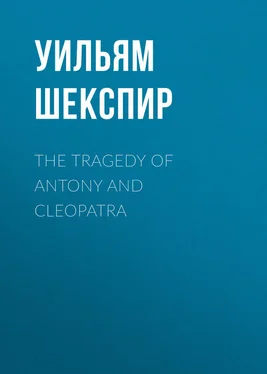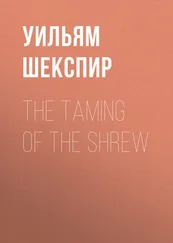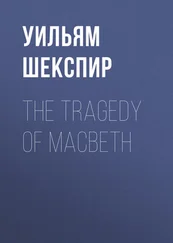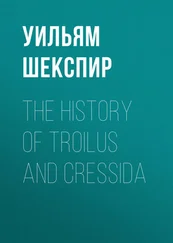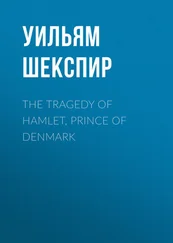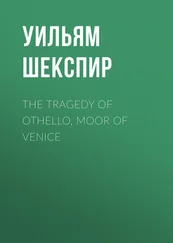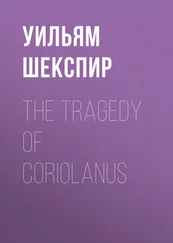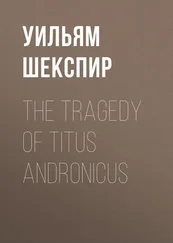Уильям Шекспир - The Tragedy of Antony and Cleopatra
Здесь есть возможность читать онлайн «Уильям Шекспир - The Tragedy of Antony and Cleopatra» — ознакомительный отрывок электронной книги совершенно бесплатно, а после прочтения отрывка купить полную версию. В некоторых случаях можно слушать аудио, скачать через торрент в формате fb2 и присутствует краткое содержание. Жанр: Европейская старинная литература, Драматургия, foreign_dramaturgy, на английском языке. Описание произведения, (предисловие) а так же отзывы посетителей доступны на портале библиотеки ЛибКат.
- Название:The Tragedy of Antony and Cleopatra
- Автор:
- Жанр:
- Год:неизвестен
- ISBN:нет данных
- Рейтинг книги:3 / 5. Голосов: 1
-
Избранное:Добавить в избранное
- Отзывы:
-
Ваша оценка:
- 60
- 1
- 2
- 3
- 4
- 5
The Tragedy of Antony and Cleopatra: краткое содержание, описание и аннотация
Предлагаем к чтению аннотацию, описание, краткое содержание или предисловие (зависит от того, что написал сам автор книги «The Tragedy of Antony and Cleopatra»). Если вы не нашли необходимую информацию о книге — напишите в комментариях, мы постараемся отыскать её.
The Tragedy of Antony and Cleopatra — читать онлайн ознакомительный отрывок
Ниже представлен текст книги, разбитый по страницам. Система сохранения места последней прочитанной страницы, позволяет с удобством читать онлайн бесплатно книгу «The Tragedy of Antony and Cleopatra», без необходимости каждый раз заново искать на чём Вы остановились. Поставьте закладку, и сможете в любой момент перейти на страницу, на которой закончили чтение.
Интервал:
Закладка:
ACT II. SCENE I. Messina. POMPEY'S house
Enter POMPEY, MENECRATES, and MENAS, in warlike manner
POMPEY. If the great gods be just, they shall assist
The deeds of justest men.
MENECRATES. Know, worthy Pompey,
That what they do delay they not deny.
POMPEY. Whiles we are suitors to their throne, decays
The thing we sue for.
MENECRATES. We, ignorant of ourselves,
Beg often our own harms, which the wise pow'rs
Deny us for our good; so find we profit
By losing of our prayers.
POMPEY. I shall do well.
The people love me, and the sea is mine;
My powers are crescent, and my auguring hope
Says it will come to th' full. Mark Antony
In Egypt sits at dinner, and will make
No wars without doors. Caesar gets money where
He loses hearts. Lepidus flatters both,
Of both is flatter'd; but he neither loves,
Nor either cares for him.
MENAS. Caesar and Lepidus
Are in the field. A mighty strength they carry.
POMPEY. Where have you this? 'Tis false.
MENAS. From Silvius, sir.
POMPEY. He dreams. I know they are in Rome together,
Looking for Antony. But all the charms of love,
Salt Cleopatra, soften thy wan'd lip!
Let witchcraft join with beauty, lust with both;
Tie up the libertine in a field of feasts,
Keep his brain fuming. Epicurean cooks
Sharpen with cloyless sauce his appetite,
That sleep and feeding may prorogue his honour
Even till a Lethe'd dullness-
Enter VARRIUS
How now, Varrius!
VARRIUS. This is most certain that I shall deliver:
Mark Antony is every hour in Rome
Expected. Since he went from Egypt 'tis
A space for farther travel.
POMPEY. I could have given less matter
A better ear. Menas, I did not think
This amorous surfeiter would have donn'd his helm
For such a petty war; his soldiership
Is twice the other twain. But let us rear
The higher our opinion, that our stirring
Can from the lap of Egypt's widow pluck
The ne'er-lust-wearied Antony.
MENAS. I cannot hope
Caesar and Antony shall well greet together.
His wife that's dead did trespasses to Caesar;
His brother warr'd upon him; although, I think,
Not mov'd by Antony.
POMPEY. I know not, Menas,
How lesser enmities may give way to greater.
Were't not that we stand up against them all,
'Twere pregnant they should square between themselves;
For they have entertained cause enough
To draw their swords. But how the fear of us
May cement their divisions, and bind up
The petty difference we yet not know.
Be't as our gods will have't! It only stands
Our lives upon to use our strongest hands.
Come, Menas. Exeunt
SCENE II. Rome. The house of LEPIDUS
Enter ENOBARBUS and LEPIDUS
LEPIDUS. Good Enobarbus, 'tis a worthy deed,
And shall become you well, to entreat your captain
To soft and gentle speech.
ENOBARBUS. I shall entreat him
To answer like himself. If Caesar move him,
Let Antony look over Caesar's head
And speak as loud as Mars. By Jupiter,
Were I the wearer of Antonius' beard,
I would not shave't to-day.
LEPIDUS. 'Tis not a time
For private stomaching.
ENOBARBUS. Every time
Serves for the matter that is then born in't.
LEPIDUS. But small to greater matters must give way.
ENOBARBUS. Not if the small come first.
LEPIDUS. Your speech is passion;
But pray you stir no embers up. Here comes
The noble Antony.
Enter ANTONY and VENTIDIUS
ENOBARBUS. And yonder, Caesar.
Enter CAESAR, MAECENAS, and AGRIPPA
ANTONY. If we compose well here, to Parthia.
Hark, Ventidius.
CAESAR. I do not know, Maecenas. Ask Agrippa.
LEPIDUS. Noble friends,
That which combin'd us was most great, and let not
A leaner action rend us. What's amiss,
May it be gently heard. When we debate
Our trivial difference loud, we do commit
Murder in healing wounds. Then, noble partners,
The rather for I earnestly beseech,
Touch you the sourest points with sweetest terms,
Nor curstness grow to th' matter.
ANTONY. 'Tis spoken well.
Were we before our arinies, and to fight,
I should do thus. [Flourish]
CAESAR. Welcome to Rome.
ANTONY. Thank you.
CAESAR. Sit.
ANTONY. Sit, sir.
CAESAR. Nay, then. [They sit]
ANTONY. I learn you take things ill which are not so,
Or being, concern you not.
CAESAR. I must be laugh'd at
If, or for nothing or a little,
Should say myself offended, and with you
Chiefly i' the world; more laugh'd at that I should
Once name you derogately when to sound your name
It not concern'd me.
ANTONY. My being in Egypt, Caesar,
What was't to you?
CAESAR. No more than my residing here at Rome
Might be to you in Egypt. Yet, if you there
Did practise on my state, your being in Egypt
Might be my question.
ANTONY. How intend you- practis'd?
CAESAR. You may be pleas'd to catch at mine intent
By what did here befall me. Your wife and brother
Made wars upon me, and their contestation
Was theme for you; you were the word of war.
ANTONY. You do mistake your business; my brother never
Did urge me in his act. I did inquire it,
And have my learning from some true reports
That drew their swords with you. Did he not rather
Discredit my authority with yours,
And make the wars alike against my stomach,
Having alike your cause? Of this my letters
Before did satisfy you. If you'll patch a quarrel,
As matter whole you have not to make it with,
It must not be with this.
CAESAR. You praise yourself
By laying defects of judgment to me; but
You patch'd up your excuses.
ANTONY. Not so, not so;
I know you could not lack, I am certain on't,
Very necessity of this thought, that I,
Your partner in the cause 'gainst which he fought,
Could not with graceful eyes attend those wars
Which fronted mine own peace. As for my wife,
I would you had her spirit in such another!
The third o' th' world is yours, which with a snaffle
You may pace easy, but not such a wife.
ENOBARBUS. Would we had all such wives, that the men might go
to
wars with the women!
ANTONY. So much uncurbable, her garboils, Caesar,
Made out of her impatience- which not wanted
Shrewdness of policy too- I grieving grant
Did you too much disquiet. For that you must
But say I could not help it.
CAESAR. I wrote to you
When rioting in Alexandria; you
Did pocket up my letters, and with taunts
Did gibe my missive out of audience.
ANTONY. Sir,
He fell upon me ere admitted. Then
Three kings I had newly feasted, and did want
Of what I was i' th' morning; but next day
I told him of myself, which was as much
As to have ask'd him pardon. Let this fellow
Be nothing of our strife; if we contend,
Out of our question wipe him.
CAESAR. You have broken
The article of your oath, which you shall never
Have tongue to charge me with.
LEPIDUS. Soft, Caesar!
ANTONY. No;
Lepidus, let him speak.
The honour is sacred which he talks on now,
Supposing that I lack'd it. But on, Caesar:
The article of my oath-
CAESAR. To lend me arms and aid when I requir'd them,
The which you both denied.
ANTONY. Neglected, rather;
And then when poisoned hours had bound me up
From mine own knowledge. As nearly as I may,
I'll play the penitent to you; but mine honesty
Shall not make poor my greatness, nor my power
Work without it. Truth is, that Fulvia,
To have me out of Egypt, made wars here;
For which myself, the ignorant motive, do
So far ask pardon as befits mine honour
To stoop in such a case.
LEPIDUS. 'Tis noble spoken.
MAECENAS. If it might please you to enforce no further
The griefs between ye- to forget them quite
Were to remember that the present need
Speaks to atone you.
LEPIDUS. Worthily spoken, Maecenas.
ENOBARBUS. Or, if you borrow one another's love for the
instant,
you may, when you hear no more words of Pompey, return it
again.
You shall have time to wrangle in when you have nothing else
to
do.
ANTONY. Thou art a soldier only. Speak no more.
ENOBARBUS. That truth should be silent I had almost forgot.
ANTONY. You wrong this presence; therefore speak no more.
ENOBARBUS. Go to, then- your considerate stone!
CAESAR. I do not much dislike the matter, but
The manner of his speech; for't cannot be
We shall remain in friendship, our conditions
So diff'ring in their acts. Yet if I knew
What hoop should hold us stanch, from edge to edge
O' th' world, I would pursue it.
AGRIPPA. Give me leave, Caesar.
CAESAR. Speak, Agrippa.
AGRIPPA. Thou hast a sister by the mother's side,
Admir'd Octavia. Great Mark Antony
Is now a widower.
CAESAR. Say not so, Agrippa.
If Cleopatra heard you, your reproof
Were well deserv'd of rashness.
ANTONY. I am not married, Caesar. Let me hear
Agrippa further speak.
AGRIPPA. To hold you in perpetual amity,
To make you brothers, and to knit your hearts
With an unslipping knot, take Antony
Octavia to his wife; whose beauty claims
No worse a husband than the best of men;
Whose virtue and whose general graces speak
That which none else can utter. By this marriage
All little jealousies, which now seem great,
And all great fears, which now import their dangers,
Would then be nothing. Truths would be tales,
Where now half tales be truths. Her love to both
Would each to other, and all loves to both,
Draw after her. Pardon what I have spoke;
For 'tis a studied, not a present thought,
By duty ruminated.
ANTONY. Will Caesar speak?
CAESAR. Not till he hears how Antony is touch'd
With what is spoke already.
ANTONY. What power is in Agrippa,
If I would say 'Agrippa, be it so,'
To make this good?
CAESAR. The power of Caesar, and
His power unto Octavia.
ANTONY. May I never
To this good purpose, that so fairly shows,
Dream of impediment! Let me have thy hand.
Further this act of grace; and from this hour
The heart of brothers govern in our loves
And sway our great designs!
CAESAR. There is my hand.
A sister I bequeath you, whom no brother
Did ever love so dearly. Let her live
To join our kingdoms and our hearts; and never
Fly off our loves again!
LEPIDUS. Happily, amen!
ANTONY. I did not think to draw my sword 'gainst Pompey;
For he hath laid strange courtesies and great
Of late upon me. I must thank him only,
Lest my remembrance suffer ill report;
At heel of that, defy him.
LEPIDUS. Time calls upon's.
Of us must Pompey presently be sought,
Or else he seeks out us.
ANTONY. Where lies he?
CAESAR. About the Mount Misenum.
ANTONY. What is his strength by land?
CAESAR. Great and increasing; but by sea
He is an absolute master.
ANTONY. So is the fame.
Would we had spoke together! Haste we for it.
Yet, ere we put ourselves in arms, dispatch we
The business we have talk'd of.
CAESAR. With most gladness;
And do invite you to my sister's view,
Whither straight I'll lead you.
ANTONY. Let us, Lepidus,
Not lack your company.
LEPIDUS. Noble Antony,
Not sickness should detain me. [Flourish]
Exeunt all but ENOBARBUS, AGRIPPA, MAECENAS
MAECENAS. Welcome from Egypt, sir.
ENOBARBUS. Half the heart of Caesar, worthy Maecenas! My
honourable
friend, Agrippa!
AGRIPPA. Good Enobarbus!
MAECENAS. We have cause to be glad that matters are so well
digested. You stay'd well by't in Egypt.
ENOBARBUS. Ay, sir; we did sleep day out of countenance and
made
the night light with drinking.
MAECENAS. Eight wild boars roasted whole at a breakfast, and
but
twelve persons there. Is this true?
ENOBARBUS. This was but as a fly by an eagle. We had much more
monstrous matter of feast, which worthily deserved noting.
MAECENAS. She's a most triumphant lady, if report be square to
her.
ENOBARBUS. When she first met Mark Antony she purs'd up his
heart,
upon the river of Cydnus.
AGRIPPA. There she appear'd indeed! Or my reporter devis'd well
for
her.
ENOBARBUS. I will tell you.
The barge she sat in, like a burnish'd throne,
Burn'd on the water. The poop was beaten gold;
Purple the sails, and so perfumed that
The winds were love-sick with them; the oars were silver,
Which to the tune of flutes kept stroke, and made
The water which they beat to follow faster,
As amorous of their strokes. For her own person,
It beggar'd all description. She did lie
In her pavilion, cloth-of-gold, of tissue,
O'erpicturing that Venus where we see
The fancy out-work nature. On each side her
Stood pretty dimpled boys, like smiling Cupids,
With divers-colour'd fans, whose wind did seem
To glow the delicate cheeks which they did cool,
And what they undid did.
AGRIPPA. O, rare for Antony!
ENOBARBUS. Her gentlewomen, like the Nereides,
So many mermaids, tended her i' th' eyes,
And made their bends adornings. At the helm
Интервал:
Закладка:
Похожие книги на «The Tragedy of Antony and Cleopatra»
Представляем Вашему вниманию похожие книги на «The Tragedy of Antony and Cleopatra» списком для выбора. Мы отобрали схожую по названию и смыслу литературу в надежде предоставить читателям больше вариантов отыскать новые, интересные, ещё непрочитанные произведения.
Обсуждение, отзывы о книге «The Tragedy of Antony and Cleopatra» и просто собственные мнения читателей. Оставьте ваши комментарии, напишите, что Вы думаете о произведении, его смысле или главных героях. Укажите что конкретно понравилось, а что нет, и почему Вы так считаете.
